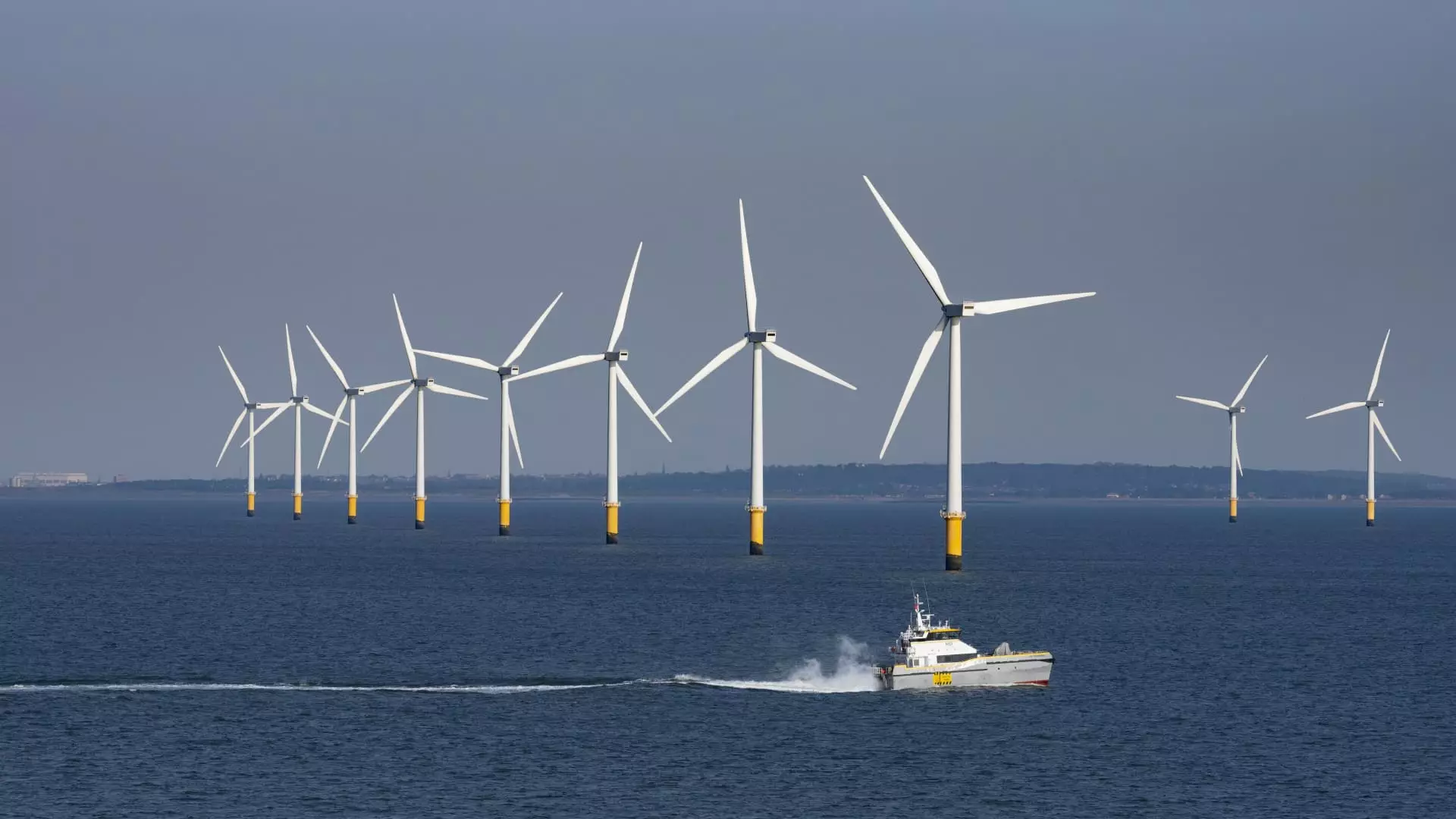The recent legislative episode in the United States reveals a sobering truth about the current state of renewable energy policy in the country—it’s often less about genuine progress and more about political maneuvering. The so-called “big beautiful bill” appears to be a facade of bipartisan consensus, but beneath its surface lies a series of concessions that threaten to undermine the very foundations of sustainable progress. While European investors celebrated short-term gains, the reality remains that U.S. policy is mired in contradictions, policy rollbacks, and a lack of committed leadership. What seems like a significant legislative victory masks deeper concerns: will this legislation catalyze meaningful change, or is it simply a strategic pause before the inevitable retreat?
In essence, the politics surrounding renewable energy in the U.S. seem to oscillate unpredictably—reacting more to electoral cycles and partisan whims than to any sincere commitment to addressing climate change. The amended bill, praised for avoiding a worst-case scenario, appears to be a fragile compromise rather than a robust strategy for long-term resilience in renewables. The removal of tax penalties and the extension of project timelines are band-aids on a sector desperately needing systemic reform. Without a serious, unwavering policy framework, these tactical adjustments risk confining the industry within a fragile bubble that could burst at the first sign of economic or political turbulence.
The European Market’s Critical Perspective: Hope Versus Reality
While European markets responded positively—highlighting the intertwined nature of transatlantic renewable investments—this optimism is tinged with skepticism. Europe’s renewable giants like Vestas, Orsted, and Nordex are navigating a complex landscape. Their recent uptick in stock prices is less a testament to U.S. policy stability and more a reflection of short-term relief. Their long-term prospects are clouded by multiple uncertainties: funding instability, aggressive competition from Chinese manufacturers, and unpredictable tariffs.
European investors have every reason to be cautious. The U.S. legislative changes, despite their apparent victories, are not comprehensive enough to secure a durable growth trajectory. The removal of tariffs on foreign components—primarily Chinese—benefits European firms momentarily, but it raises questions about strategic independence. Relying on a policy environment that can be whimsically altered barely a year after major legislative amendments isn’t reassuring. Moreover, an overly flexible timeline for project commencement could lead to a chaotic boom-bust cycle rather than steady, sustainable growth.
This dichotomy underscores a critical insight: Europe’s renewables sector, though currently more mature and diversified, must remain vigilant. Relying on the U.S. market’s transient political whims is a risky gamble. European utilities, which have substantial stakes in North American projects, are caught in a limbo—hope for growth mingling with the harsh reality of a less certain policy landscape ahead.
The Broader Implications for U.S. and Global Climate Goals
At the core of this policy debate lies a fundamental question: does the U.S. truly intend to lead in decarbonization, or is climate ambition just a headline in political theater? The amended bill, while temporarily alleviating fears in the renewables sector, reveals a deeper retreat from the ambitious climate commitments that ostensibly underpin global efforts. It’s not merely about taxing or excluding foreign components; it’s about the inconsistency and fragility embedded within U.S. climate policy.
The sector’s future is thus being held hostage by oscillating political figures and their shifting priorities. While certain industry players might skirmish their way into short-term profits, the overarching framework remains fundamentally unstable. This incoherent approach risks sidelining the U.S.’s role as a global leader in renewable deployment. Countries worldwide are accelerating their decarbonization efforts, recognizing that climate stability requires long-term, stable policies—not episodic legislative patches.
Furthermore, the U.S. risks losing its competitive edge to nations with clearer, more committed climate strategies, notably China and parts of Europe. These regions are pushing forward with aggressive renewables deployment, making the U.S. an unreliable partner in global efforts. The consequences are stark: not only do American wind and solar industries suffer, but global climate targets become harder to attain when one of the world’s biggest markets refuses to fully commit.
What stands out in this legislative saga is the stark need for genuine leadership—ones that prioritize long-term sustainability over political convenience. The current trajectory suggests that renewable energy in the U.S. remains a pawn in broader ideological battles rather than a pillar of genuine environmental stewardship. Policymakers must shift focus from reactive band-aids to strategic, unwavering policies that provide clarity, stability, and incentives aligned with the urgency of climate change.
Until there is a recognition that climate action must transcend partisan divides, the U.S. will remain a glass house vulnerable to internal fractures. European investors and global partners may find temporary solace, but true progress requires America to embrace responsibility—not as a political tactic, but as an integral part of its economic and moral legacy. Without this commitment, the current legislative patchwork risks being destined for obsolescence, leaving the nation—and the planet—more vulnerable than ever.

